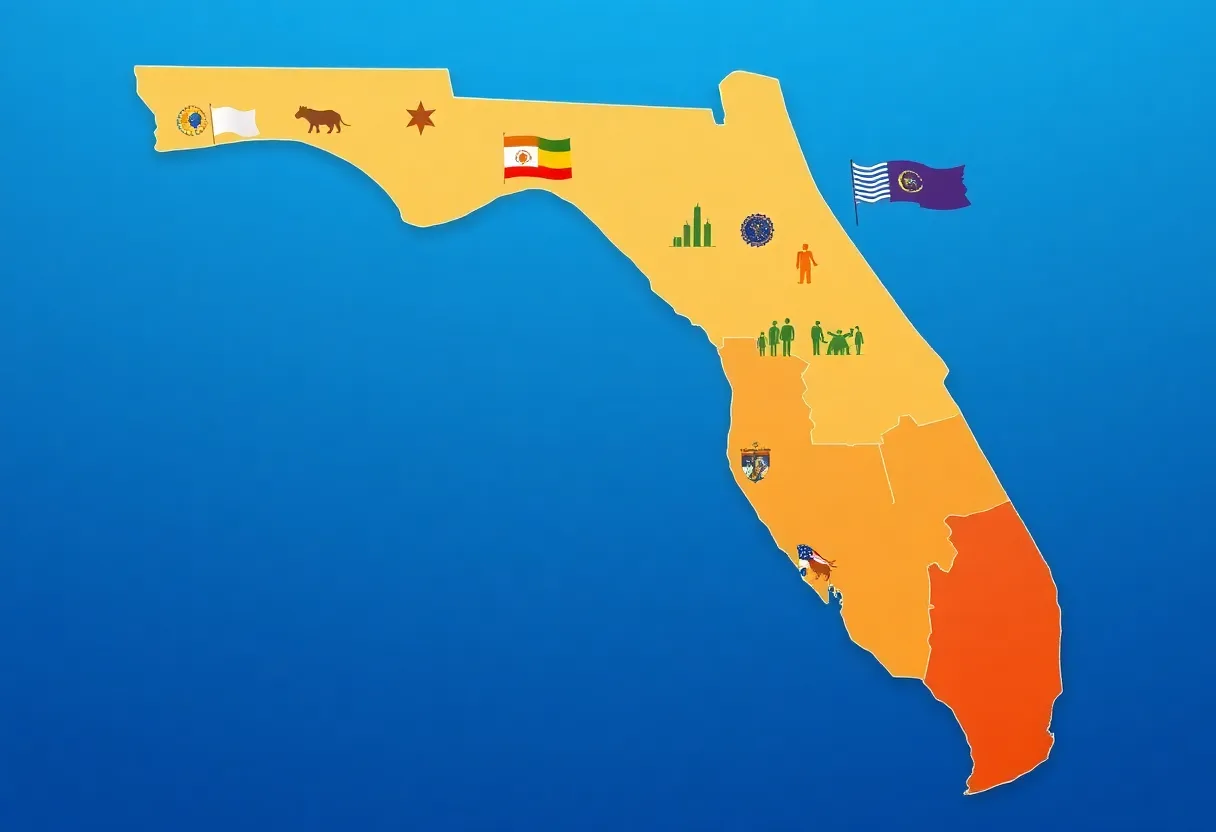News Summary
The Florida Supreme Court upheld the state’s new congressional district maps in a decisive ruling. This decision denied preservation of the racially gerrymandered Congressional District 5, citing violations of the Equal Protection Clause. Advocates challenged the maps, claiming they undermine minority representation. The ruling reflects a shift in the court’s political composition, raising concerns about the influence of the state’s conservative majority. As redistricting debates continue, advocacy for fair representation remains a priority in Florida’s political landscape.
Tallahassee, Florida – The Florida Supreme Court upheld the state’s congressional district maps in a significant 5-1 ruling on July 17, determining that the former Congressional District 5 could not remain intact without relying on racial considerations, which would violate the Equal Protection Clause of the 14th Amendment. This decision comes after challenges from a coalition of voting-rights organizations, including Black Voters Matter and the League of Women Voters of Florida, who argued that the newly drawn districts violated the Fair Districts Amendment implemented by voters in 2010.
The Fair Districts Amendment prohibits the state Legislature from creating congressional maps that undermine the ability of minority groups to elect representatives of their choice. In his statement, Chief Justice Carlos Muñiz highlighted that maintaining a racially gerrymandered district, as requested by the plaintiffs, goes against federal law. Justice Charles Canady recused himself from the ruling, though no explanation was provided. It is worth noting that his spouse is a Republican member of the state House who supported the maps in question.
The previous Congressional District 5 had a distinctive shape that extended from Jacksonville to Tallahassee and was represented by the former U.S. Representative Al Lawson, a Black Democrat. However, under the new redistricting plan, Lawson lost his seat to incumbent U.S. Representative Neil Dunn, a Republican from Panama City, as the boundaries were redrawn to connect Tallahassee to Panama City instead.
Critics, including Lawson, expressed dissatisfaction with the court’s ruling, alleging it was influenced by political motivations. They claimed that the map favored the current political landscape, primarily established under Governor Ron DeSantis, who appointed all justices in the majority. Lawson expressed concerns that the composition of the court has shifted politically, implying that the rulings reflect loyalty to DeSantis more than a commitment to justice.
In the lead-up to the ruling, the Supreme Court acknowledged mistakes made in earlier proceedings that led to confusion in lower courts. The current configuration of the Florida Supreme Court reflects a conservative majority, which has evolved from a 5-2 liberal majority in 2016 to a 6-1 ruling block after five justices were appointed by DeSantis. This change has played a role in recent decisions regarding congressional maps, shifting power dynamics in the state legislature.
DeSantis faced pushback regarding the redistricting process after he vetoed a backup plan proposed by the Legislature and mandated the dissolution of the previous Congressional District 5. His administration argued that the upheld map is constitutionally sound, receiving validation from federal courts as well as the Florida Supreme Court.
Justice Jorge Labarga presented a dissenting opinion, advocating for the case to be sent back to a trial court for further assessment. Although this ruling has settled one challenge against Florida’s congressional maps, another legal battle remains underway concerning Congressional District 26 in South Florida, filed by the progressive Cuban-American group Cubanos Pa’Lante, highlighting ongoing disputes around the state’s redistricting process.
As the legal and political landscape continues to shift, the ruling illustrates the complexities involved in redistricting efforts and their significant implications for representation in Florida. The ongoing challenges and advocacy surrounding the treatment of minority voting rights will likely remain a focal point in future electoral discussions.
Deeper Dive: News & Info About This Topic
HERE Resources
Additional Resources
- Florida Phoenix
- Wikipedia: Redistricting in the United States
- Tallahassee Democrat
- Google Search: Florida Supreme Court redistricting
- Local News Live
- Encyclopedia Britannica: Redistricting

Author: STAFF HERE TALLAHASSEE WRITER
The TALLAHASSEE STAFF WRITER represents the experienced team at HERETallahassee.com, your go-to source for actionable local news and information in Tallahassee, Leon County, and beyond. Specializing in "news you can use," we cover essential topics like product reviews for personal and business needs, local business directories, politics, real estate trends, neighborhood insights, and state news affecting the area—with deep expertise drawn from years of dedicated reporting and strong community input, including local press releases and business updates. We deliver top reporting on high-value events such as Springtime Tallahassee, Tallahassee Jazz & Blues Festival, and LeMoyne Chain of Parks Art Festival. Our coverage extends to key organizations like the Greater Tallahassee Chamber of Commerce and United Way of the Big Bend, plus leading businesses in education, healthcare, and insurance that power the local economy such as Florida State University, Tallahassee Memorial HealthCare, and Capital Health Plan. As part of the broader HERE network, including HEREJacksonville.com, HEREOrlando.com, HEREStPetersburg.com, and HERETampa.com, we provide comprehensive, credible insights into Florida's dynamic landscape.


